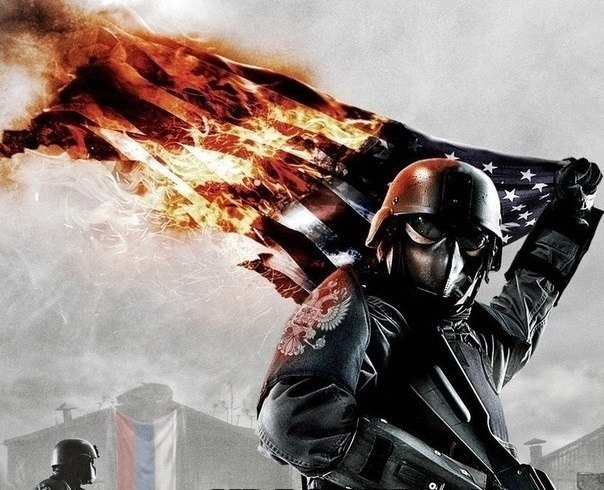Putin’s Russia has crossed a Rubicon: it now has sanctioned the Anti-Maidan Movement, a domestic version of Hitler’s storm troopers, and thus created a monster that almost certainly will engage in pogroms against one group or another in the future, according to Moscow commentator Matvey Ganapolsky.
Despite Putin’s ratings in the polls and the power of various state agencies, the Kremlin leader has clearly decided that it needs another weapon to control society and direct it along the lines it wants, and he clearly could think of nothing better than to adopt one of the “attributes of the Third Reich.”
“The times have passed” when the Putin regime used informal groups of bullies against those it doesn’t like or approve of, the Moscow commentator says. Now, those bullies are being officially recognized and legalized, they are holding press conferences, and they are “talking but the salvation of the Motherland.”
As Ganapolsky reports, “the new Russian storm troopers call themselves ‘the Anti-Maidan Movement” and have ostensibly been created by the Militant Brotherhood, the Union of Afghanistan Veterans, the Central Cossack Forces and the Night Wolves, thus allowing the Kremlin plausible deniability about who and what is really behind them.
The new group’s name suggests that it is to be deployed against a Russian Maidan, but “this goal is to put it mildly a fake one” because “there is no Maidan in Russia: no one is standing in the squares” and challenging the regime. Opposition meetings have been “reduced to almost nothing,” and “no one is attacking the authorities or the president.”
That makes the appearance of this group now “strange,” Ganapolsky says, especially given that its leaders say it will have some 10,000 members who will “observe the meetings of the opposition” and oppose any “’orange’ technologies” that the enemies of Russia may be employing against her.
The Russian authorities have responded with “silence. The law enforcement organs listen and see that young people are organizing in camps, that they are conducting military and ideological training … and they are silent.” And their failure to say anything says more than any words could, Ganapolsky suggests.
Clearly, the authorities themselves see the need for a movement from below which can act in completely unconstitutional ways, that the authorities can point to as an indication of popular anger against any moves toward democracy, and that these same authorities can plausibly deny they have anything to do with.
Given all this, Ganapolsky asks, “how should this force structure which is ideologically supported by the state but unconstitutional in its essence and not subordinate to the Interior Ministry be called?” And he gives what he says is a most unpleasant answer: “Without doubt, these are storm troopers.”
The formation of such groups is necessarily worrisome in terms of what they may do in the immediate future, but the long term consequences of the Anti-Maidan Movement may be even more serious – and even more dangerous than their current authors and supporters now think.
At some point, the war in the Donbas will end, and pro-Moscow militants there will return to Russia. When they do, they are likely to link up with groups like the Anti-Maidan Movement. When that happens, he observes, “a big question will arise: will a place in such a state exist for the authorities and the president?” Or will they do be swept away too?

